
Tax lax
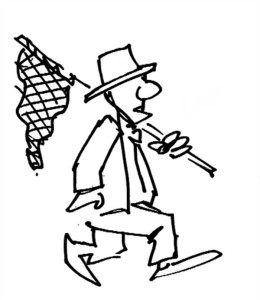
Sir,
After the announcement of the recent amnesty scheme for tax evaders, the Federal Bureau of Revenue should legally, morally and ethically drop all proceedings against existing law-abiding taxpayers at once.
Otherwise it would mean they had made a mistake by filing their returns on time and declaring their income honestly.
Jawed Abubaker,
Karachi.
Hope and change
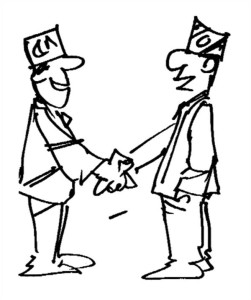
Sir,
Although the year 2013 has ended with most of our hopes unfulfilled, Pakistanis have faith in their future. A brighter future awaits us, but only if our new leaders in government, military, and the judiciary go hand in hand to face the country’s challenges head-on. We need action on four major fronts – combating terrorism, strengthening political stability, overcoming the energy shortage, and dealing with unpredictable situations on our borders.
Our fight against terrorism has entered a crucial phase – most of the credit for clearing the tribal areas of terrorist outfits goes to the army – but politicians, the media, religious scholars and the intelligentsia need to contribute towards fighting sectarianism and extremism ideologically and intellectually. The army can fight the Taliban, but who will fight Talibanization? That nation has to straighten out its outlook by shedding sectarian prejudices and intolerance.
On the political front, a better managed general election was held, which helped deepen the roots of democracy. On the foreign policy front, a more serious challenge is going to emerge as observers see opportunities as well as dangers alike if and when the US-led forces leave Afghanistan by the end of 2014. How Kabul reacts in the post-withdrawal period is to be of critical importance to Pakistan, opines a newspaper editorial. However, the UN General Assembly’s resolution on drone strikes is considered to be an achievement on part of the government as it has the potential of triggering a worldwide debate against President Obama’s “weapon of choice”. On the economy front, years of campaigning in Brussels have finally paid off with an EU Parliament vote confirming wide-ranging trade concessions for Pakistan’s exports under the EU’s GSP-Plus scheme.
Besides interacting with world’s financial institutions and pleading for inflow of foreign assistance, Prime Minister Nawaz Sharif’s priority list also seems to include improvement of ties with India. “The two countries need to work towards overcoming the baggage of history, the prevailing mistrust, and the lack of flexibility. We have no option but to normalize mutual relations for the sake of peace and progress of our people, Prime Minister Nawaz Sharif said to India. He met Manmohan Singh in New York and agreed on establishing direct and indirect contacts between the two countries. His adviser on national security and international affairs, Sartaj Aziz, visited New Delhi and discussed the mechanisms. Punjab Chief Minister Shahbaz Sharif paid an informal visit to the Indian Punjab, where he also visited his hometown Jati Umra and watched a Pakistan-India Kabaddi match. He and Parkash Singh Badal, his counterpart, signaled that they were ready “to forget the past and meet to explore avenues” for the welfare and progress of the people of the two Punjabs.
But the most significant of all was the rendezvous of the directors general of military operations of Pakistan and India – a rare event at the Wahga border that was even highlighted by the world media. The military leaders pledged to uphold the 2003 ceasefire on the Line of Control and discussed steps to make that possible.
This was followed by a marathon flag meeting between the two militaries. It is expected that such meetings at the level of military commanders would lead to further contacts. Mutual trust and confidence, once restored, will help resolve larger issues like Sir Creek, Siachen, and eventually Kashmir.
F Z Khan,
Islamabad.
How’s that?
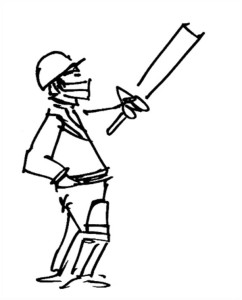
Sir,
Pakistan’s discarded left-handed opening batsman Imran Farhat scored the second triple century of his first class career recently. The 31-year-old Imran, who has widely been criticized for being given too many chances at the international level, equaled the record of Pakistan’s batting legend Hanif Mohammad.
It is true that Imran Farhat has not performed consistently at the international level, but after scoring his second triple century, he has done what even legends like Inzamamul Haq, Javed Miandad, Zaheer Abbas, and Mohammad Yousuf could not do.
We must appreciate him, and the Pakistan Cricket Board must announce a reward for him.
Mubashir Mahmood,
Karachi.
Double-edged general
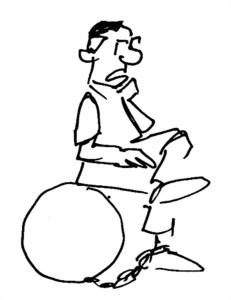
Sir,
As the treason trial of former military dictator Gen (r) Pervez Musharraf begins, a division has emerged among politicians. Some are of the view that the goal of this trial is to make the army subservient to the civilian government, and that the army is unhappy to witness its former chief suffer the indignity of being tried by a civilian court. Some say certain elements had laid a trap for Musharraf while he was abroad, by giving him an impression through the social media that Pakistan was waiting for him and he would be warmly welcomed on his return from self-exile. Moreover, after his arrival in Pakistan, planned and coordinated efforts were made to “humiliate” him and to provoke the military by dragging the institution into unnecessary litigation along with Musharraf.
Putting their weight behind the ex-chief, retired military officers say if a vote was held, 90 percent of the army would favor Musharraf. They see it as political victimization and revenge, although the government is likely to pardon Musharraf once he is convicted. They say Musharraf had constitutional immunity during his presidential period, and therefor Article 6 of the Constitution could not be implemented in this case.
Meanwhile, the opposition leader in the National Assembly urged the army to explain its position on Pervez Musharraf’s recent statement, contending that the silence could be misconstrued as consent.
As far as the international media is concerned, there is a strong belief that the former army chief was eager to return to the comfort of his home country where he knew his army would protect him and therefore he threatened the political government with reaction from the army. Notwithstanding the fact he had lost the popular support among the armed forces when he was forced to take off his uniform in late 2007 and later quit the presidency in 2008, he still believes there is a soft corner for him among the ranks of the military. He is remembered as a brash general who would even stand up for a junior officer, which in contrast did not stop his generals from opposing him on his peace overtures to India or extra concessions to the US.
Since his arrival in Pakistan and the initiation of various court cases, he has received all kinds of support. But the military leadership would like to act cautiously, and not support him at the cost of risking the army’s reputation, which was rebuilt after a lot of effort.
Sumera Mirza,
Islamabad.
Built on sand
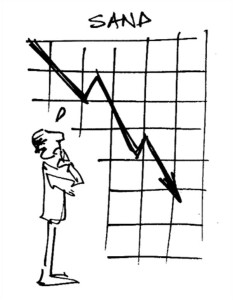
Sir,
Sand is a major component in a large number of everyday products, even more than crude oil. It is used for the production of concrete and plaster, comestible goods, cosmetics, and cleaning agents, as well as electronics such as computers, mobile phones and credit cards.
There has been a major increase in the demand for sand because of a worldwide building boom, due to the increase in population and the economic development in newly industrializing countries such as India, China and Thailand. Two thirds of all buildings in the world are built with concrete, and two thirds of that concrete is sand. About 200 tons of sand is required for a middle sized house, 30,000 tons for every kilometer of a motorway, and 12 million tons for a nuclear power plant.
The demand for sand is about 40 million tons a year, of which 15 million tons are taken out of nature. That is an incredible amount. In the western world, every inhabitant consumes 20 kg sand each day.
Ironically the Arab countries, such as Dubai, are the main importers of sand, although they are surrounded by a plenty of it. That is because desert sand cannot be used in the concrete industry. Dubai, for instance, imports millions of tons of sand from Australia for its huge skyscrapers and for the newly built apartments on the newly built islands. The English saying “He can even sell sand to the Arabs” has lost its irony.
The cultivation of the amount of sand required today is not possible without massive environmental damage. The dragging of rivers has led to flooding, so the sand industry has turned to the oceans. Thousands of ships go through the seas every day to pump out the sand with huge pipes. At the same time, every living being on the ocean floor is destroyed – coral reeves are shattered and animals crushed. That disturbs the whole biosphere, because the little animals on the ocean floor are food for the bigger fish.
The loss is dramatic. Fishermen are complaining that there is no more fish left in the areas where sand is mined. When the sand is taken out, it leaves a large crater, which is naturally filled up by the coast sand over time. Sometimes that makes whole islands disappear, especially in countries like Indonesia and Maldives. Thousands of island inhabitants saw their homes disappearing in the open sea.
In places where the sand does not disappear, it is stolen. Morocco is one example of a country where where unbelievable things are taking place. Hundreds of mafia workers are stealing at the beaches until only the rock remains. Who had ever thought people could steal an entire beach. The irony is that this sand is used in the construction of huge hotels, although tourists actually visit those places to see the beaches. About 45% of beaches in Morocco and Senegal are being stolen by the mafia at the moment.
Since the digging of sand is officially forbidden by law because of environmental issues, the market is full of criminal groups in India, Indonesia and Cambodia. Partly with divers and trawls, they steal the sand without caring about the animals and nature, and the crime has reached the stage where they do not even stop short of bribery or murder. These mafias have influence of major construction companies, and their roots can be found in the highest government seats.
Singapore is one of the fastest emerging cities these days. They need sand to make more land to build on. Apparently, the sand usage is tremendous, and the awareness at its minimum.
Are there any alternatives to sand? Wood can be taken into consideration, especially the fast growing bamboo. Recycled glass can also be used instead of sand. But there is little will to switch to alternatives. So far, the price of sand is very low, and the concrete lobby is very powerful. Like oil, sand is coming to a virtual end before people start thinking of alternatives.
The treasures of nature appear to be inexhaustible, but the only thing truly inexhaustible is our greed. Our current lifestyle does not have a solid foundation. It is built on sand.
Dua Wahab Khan,
Bad Homburg.
Good die young
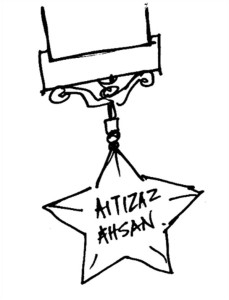
Sir,
Aitzaz Hassan, the young boy from Hangu who died while stopping a suicide attacker from bombing his school, is a hero who would be remembered for his extraordinary courage and resolve. He has reminded every Pakistani of their sacred duty to safeguard their motherland against terrorism.
Regardless of how it started, the young people of Pakistan seem to own this war on terror more than their elders. Unfortunately, in the last 12 years, young Pakistanis have paid the price of the wrongdoings of their elders. And the incident in Hangu is a grim reminder of how this war is engulfing yet another generation of Pakistanis. Bravo to the young generation for trying to extinguish this fire with their blood – the fire spread by a few hypocrites of the older generation. People like Malala Yousafzai and Aitzaz Hassan certainly connect with the new generation of Pakistanis and are their heroes.
The great sacrifice made by the young man from Hangu has once again exposed right wing politicians who, in the garb of justice and faith, are trying to confuse and divide young Pakistanis on the issue of terrorism. The unprecedented apathy of the Khyber Pakhtunkhwa government after the incident has raised great concerns, about their narrative and about the recently framed so-called security policy.
State-sponsored orthodoxy has already taken a heavy toll on the unity of the Pakistani society. A faith-based state narrative that conflicted with culture-based regional narratives has already caused serious ideological rifts in the country. The state widened these rifts by shunning the tolerant Sufi Islam and replacing it with extremist, intolerant, far-right orthodox interpretation of religion. The bitter fruit of the seeds that were sown decades ago is now being reaped.
In these times of dismay and hopelessness, young heroes are keeping our spirits alive. The confused older generation of Pakistan must show the same conviction against terrorism as Aitzaz.
Atif Mahmood Majoka,
Melbourne.

